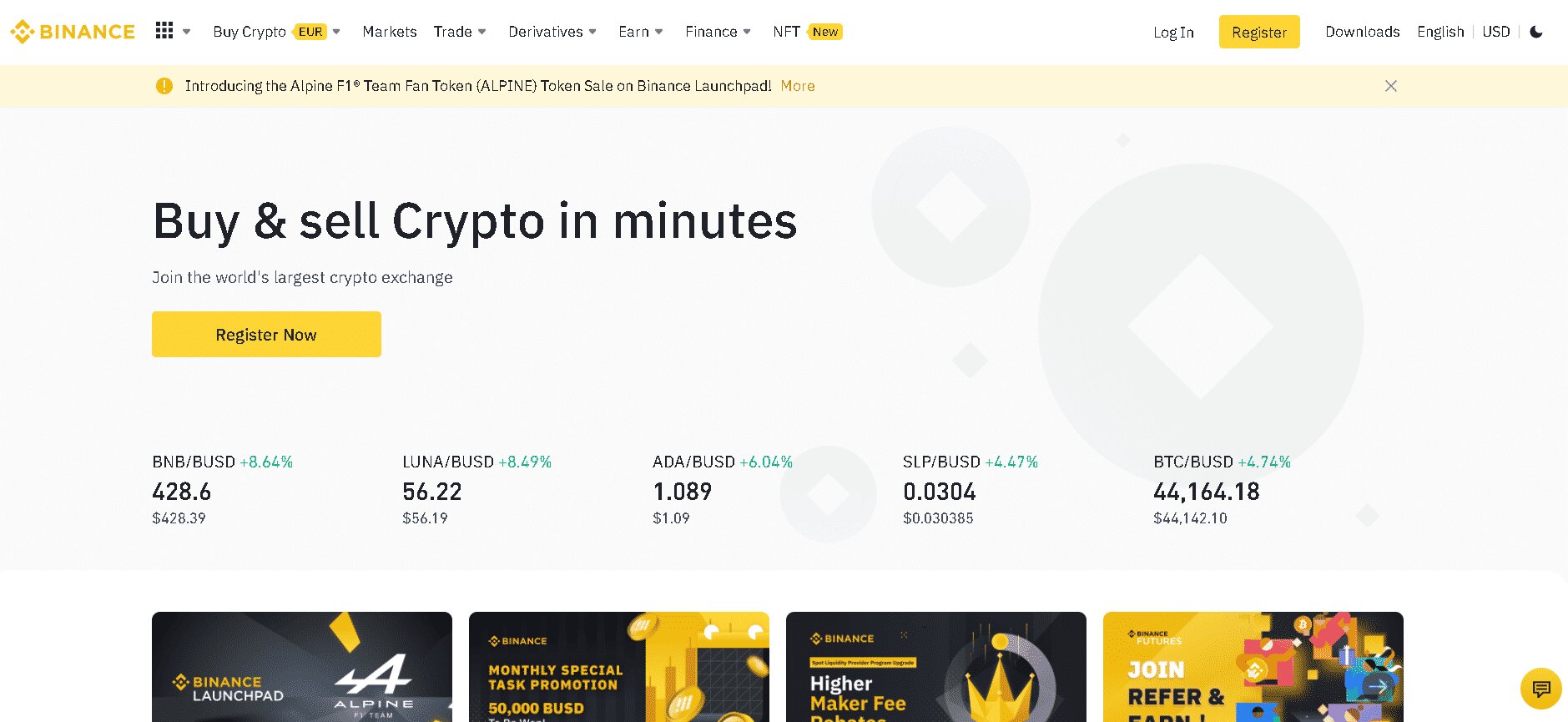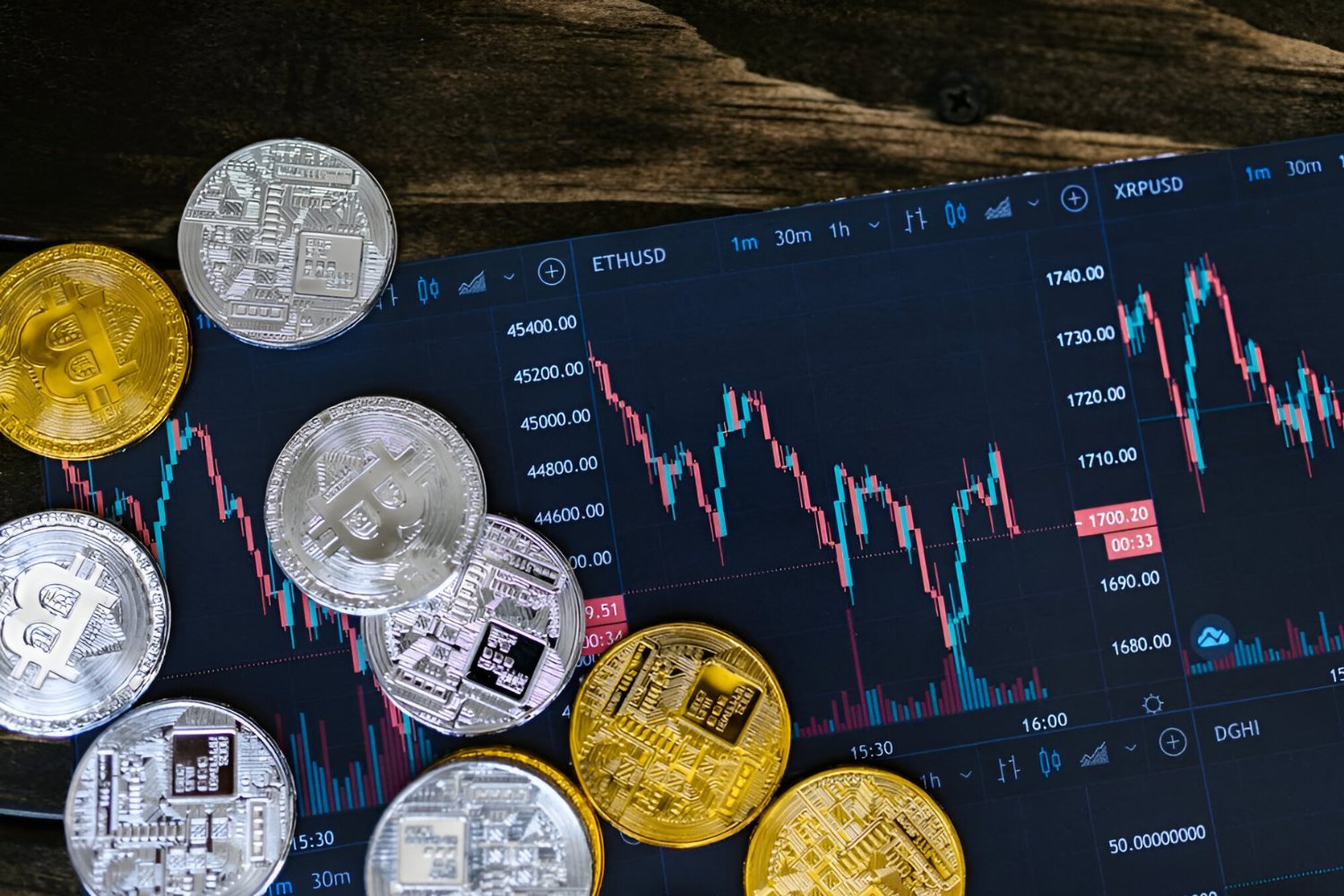Introduction
Cryptocurrency has become a prevalent asset class, attracting investors and traders from around the world. In addition to established centralized exchanges, a new type of trading platform has emerged in the crypto space known as Decentralized Exchanges (DEX). These platforms offer an alternative to traditional centralized exchanges by eliminating the need for intermediaries and providing users with direct control over their funds.
In recent years, DEX crypto has gained significant traction due to its unique features and benefits. Unlike centralized exchanges, which store users’ funds in their custodial wallets, DEX crypto operates on blockchains, allowing users to trade assets directly from their own wallets. This decentralized nature brings increased security, privacy, and transparency to the trading process.
This article will delve into the world of DEX crypto, exploring its definition, functionality, advantages, limitations, and popular platforms. Whether you’re a beginner or a seasoned crypto enthusiast, understanding DEX crypto and its impact on the wider crypto ecosystem is crucial.
What is DEX Crypto?
DEX, short for Decentralized Exchange, refers to a type of cryptocurrency exchange that operates on a decentralized network, typically utilizing smart contracts on a blockchain. Traditional centralized exchanges require users to deposit their funds into the exchange’s wallet, where they relinquish control over their assets. In contrast, DEX crypto allows users to retain custody of their funds throughout the trading process.
Rather than relying on a central authority to facilitate transactions, DEX crypto utilizes smart contracts, which are self-executing agreements stored on the blockchain. These contracts automatically match and settle trades, ensuring a transparent and trustless trading experience.
DEX crypto platforms provide users with the option to trade a wide range of cryptocurrencies directly from their wallets. By connecting buyers and sellers directly, these platforms eliminate the need for intermediaries, reducing transaction fees and minimizing the risk of hacking or theft. This peer-to-peer trading model aligns with the core principles of decentralization, empowering users with full control over their assets.
One of the significant advantages of DEX crypto is its ability to operate across multiple blockchains, allowing users to trade assets from different networks. This interchain compatibility expands liquidity opportunities and promotes a more inclusive crypto ecosystem.
While centralized exchanges remain popular due to their simplicity and liquidity, DEX crypto offers several unique benefits. These platforms grant users complete ownership of their funds, ensuring they never have to trust a third-party with their assets. Additionally, DEX crypto supports privacy by design, as personal information is not required for trading. This anonymity makes DEX crypto a preferred choice for users who value privacy and security.
However, it’s important to note that DEX crypto does have its limitations, including potential liquidity constraints and slower transaction speeds compared to centralized exchanges. Nonetheless, the evolving landscape of blockchain technology is addressing these challenges, and DEX crypto continues to gain traction as a viable alternative to traditional exchanges.
How Does DEX Crypto Work?
To understand how DEX crypto works, it’s essential to grasp the concept of smart contracts. Smart contracts are self-executing contracts with predefined rules and conditions encoded on a blockchain. These contracts facilitate the exchange of assets between parties without the need for intermediaries.
In the realm of DEX crypto, smart contracts act as the backbone of the trading process. When a user wants to trade a particular cryptocurrency, they initiate a transaction by interacting with the relevant smart contract on the DEX platform. This smart contract contains the rules and logic necessary to match the buyer with a suitable seller.
When a trade is executed, the smart contract verifies the availability of funds in the buyer’s wallet and ensures the seller’s willingness to complete the transaction. If both conditions are met, the smart contract automatically completes the trade, transferring the assets between the buyer and seller’s wallets, all while being recorded on the blockchain for transparency.
DEX crypto platforms provide users with a user-friendly interface to interact with the underlying smart contracts. Users can connect their wallets to the DEX platform through a secure connection, allowing them to access their funds for trading seamlessly. This eliminates the need to transfer funds to a centralized exchange and mitigates the associated risks.
One of the key advantages of DEX crypto is the ability to trade assets directly from one’s wallet. Users do not need to deposit their funds into the exchange’s control, which reduces the risk of hacks and reduces the reliance on centralized platforms.
Furthermore, DEX crypto platforms often leverage liquidity pools, which are decentralized pools of funds provided by users. These pools enable efficient trading by providing ample liquidity for different trading pairs. Liquidity providers earn a share of the trading fees as an incentive for contributing to the pool.
Overall, DEX crypto works by utilizing smart contracts and connecting users directly without the need for intermediaries. This decentralized approach empowers users to maintain control over their funds and ensures transparency and security throughout the trading process.
Advantages of DEX Crypto
DEX crypto offers several distinct advantages over traditional centralized exchanges, making it an attractive option for users in the cryptocurrency space. Here are some key benefits of utilizing DEX crypto platforms.
- Security: One of the primary advantages of DEX crypto is enhanced security. Since users retain control of their funds, there is no risk of funds being compromised due to hacks or vulnerabilities on a centralized exchange. Smart contracts and blockchain technology ensure a secure trading environment, reducing the reliance on trust.
- Privacy: DEX crypto platforms prioritize privacy. Users can trade cryptocurrencies without needing to provide personal information, such as identification documents, thereby maintaining their anonymity. This focus on privacy aligns with the ideals of decentralization and empowers users to have more control over their personal data.
- Custody of Funds: DEX crypto enables users to maintain custody of their funds throughout the trading process. Instead of having to deposit funds into an exchange’s wallet, users can transact directly from their personal wallets. This eliminates the risk of funds being held by a third party and offers more control and security over one’s assets.
- Reduced Fees: DEX crypto platforms generally have lower trading fees compared to centralized exchanges. This is due to the absence of intermediaries and the automated execution of trades through smart contracts. Users can save on transaction costs, especially for high-frequency traders or those dealing with significant trading volumes.
- Global Accessibility: DEX crypto platforms are accessible globally, allowing users from different parts of the world to engage in decentralized trading. There are no geographical restrictions or requirements for users to go through elaborate verification procedures, which often hinder accessibility on centralized exchanges.
- Interoperability: DEX crypto platforms often support interoperability, meaning they allow users to trade assets across different blockchains. This promotes liquidity and encourages the exchange of assets between various blockchain networks, fostering a more inclusive and connected cryptocurrency ecosystem.
These advantages make DEX crypto appealing to individuals who value security, privacy, and control over their funds. As the crypto industry evolves, DEX crypto stands as a viable alternative to traditional exchanges, offering a decentralized approach to trading cryptocurrencies.
Limitations of DEX Crypto
While DEX crypto offers numerous benefits, it is important to understand and consider the limitations of these platforms before engaging in decentralized trading. Here are some notable limitations of DEX crypto:
- Liquidity: One of the primary challenges for DEX crypto platforms is liquidity. Centralized exchanges tend to have higher trading volumes and more participants, resulting in deeper liquidity pools. DEX platforms, on the other hand, may struggle to provide the same level of liquidity, especially for less popular or newly listed tokens. This can lead to wider spreads and less favorable trading conditions.
- Transaction Speed: DEX crypto platforms rely on the speed of the underlying blockchain network for transaction confirmation. Since blockchains, such as Ethereum, have limited transaction throughput, trade execution can be slower compared to centralized exchanges. Users may experience delays and longer wait times for their transactions to be processed and confirmed.
- User Experience: DEX crypto platforms, although improving, often have a steeper learning curve and may be less user-friendly compared to centralized exchanges. The interface and functionality of DEX platforms are continuously evolving, but they may still lack the intuitive design and convenience of more established exchanges. This can make it more challenging for beginners or less tech-savvy individuals to navigate and utilize DEX platforms effectively.
- Smart Contract Risks: DEX crypto relies heavily on the functionality and security of smart contracts. While smart contracts are designed to be tamper-proof, they are not completely immune to vulnerabilities or human errors in their coding. If a smart contract is compromised, it could lead to loss of funds or other unintended consequences. Users must be cautious and conduct due diligence on the smart contracts and underlying protocols before engaging in trading activities.
- Regulatory Concerns: As with any aspect of the cryptocurrency industry, regulatory frameworks and compliance requirements vary across jurisdictions. The decentralized nature of DEX crypto can raise concerns regarding anti-money laundering (AML) and know your customer (KYC) regulations. Users should be aware of the legal implications and obligations associated with utilizing DEX platforms in their respective jurisdictions.
Despite these limitations, the DEX crypto sector continues to innovate and address these challenges. With advancements in blockchain technology and user experience, DEX platforms are striving to provide better liquidity, improved transaction speeds, and a more seamless trading experience. It is crucial for users to weigh the pros and cons of DEX crypto and make informed decisions based on their individual needs and risk tolerance.
Popular DEX Crypto Platforms
As the demand for decentralized trading continues to grow, several DEX crypto platforms have emerged, offering unique features and functionalities. Here are a few popular DEX crypto platforms that have gained significant traction in the crypto community:
- Uniswap: Uniswap is one of the most widely used DEX platforms built on the Ethereum blockchain. It utilizes an automated market maker (AMM) model, which allows users to trade ERC-20 tokens directly from their wallets. Uniswap operates on liquidity pools created by users, enabling seamless token swaps and providing incentives for liquidity providers through transaction fees.
- SushiSwap: SushiSwap is a decentralized exchange and an AMM protocol forked from Uniswap. It offers additional features such as yield farming and staking, providing users with opportunities to earn rewards by providing liquidity to the platform. SushiSwap has gained popularity for its community-driven governance and innovative product offerings.
- PancakeSwap: PancakeSwap is a popular DEX running on the Binance Smart Chain (BSC). It offers a range of features, including yield farming, staking, and initial coin offerings (ICOs). PancakeSwap has gained attention for its lower transaction fees and faster transaction speeds compared to Ethereum-based DEX platforms.
- Balancer: Balancer is a DEX platform that allows users to create and manage liquidity pools with multiple tokens and different weights. Users can access these pools for self-balancing portfolios or to provide liquidity and earn fees. Balancer offers flexibility and customization, making it attractive for advanced traders and liquidity providers.
- 1inch: 1inch is a decentralized exchange aggregator that sources liquidity from various DEX platforms to provide users with the best trading rates. By aggregating liquidity from multiple sources, 1inch aims to minimize price slippage and optimize trade execution for users. It operates on both Ethereum and Binance Smart Chain, increasing accessibility and providing a seamless trading experience.
- Curve Finance: Curve Finance is a DEX specialized in stablecoin trading, offering low slippage and minimal fees for stablecoin swaps. It is designed to cater to users seeking stablecoin liquidity and is known for its focus on low-risk and efficient trading of stablecoins.
These are just a few popular examples of DEX crypto platforms, and the decentralized exchange landscape continues to evolve rapidly. It’s essential to conduct thorough research, consider factors like liquidity, security, and user experience before choosing a DEX platform for your trading needs.
Conclusion
The rise of DEX crypto platforms has brought a new dimension to the cryptocurrency industry. These decentralized exchanges offer users increased security, privacy, and control over their funds, while promoting transparency and trust through the use of smart contracts on blockchain networks.
DEX crypto platforms have numerous advantages, including enhanced security, privacy, reduced fees, global accessibility, and interchain compatibility. Users can trade directly from their wallets, eliminating the need for intermediaries and maintaining custody of their funds. The focus on privacy and the ability to trade across blockchains make DEX crypto a preferred choice for many crypto enthusiasts.
Despite these benefits, it is important to acknowledge the limitations of DEX crypto, such as liquidity constraints, transaction speed, and user experience challenges. However, the industry is continuously striving to overcome these limitations, with ongoing improvements in blockchain technology and user interface design.
The popularity of DEX crypto has given rise to several platforms like Uniswap, SushiSwap, PancakeSwap, Balancer, 1inch, and Curve Finance. Each platform has its unique features, catering to different trading preferences and offering various opportunities for users to participate in decentralized trading.
As the crypto industry evolves, DEX crypto is expected to play a significant role in reshaping how people trade and interact with cryptocurrencies. The decentralized nature of these platforms aligns with the core principles of cryptocurrencies, empowering individuals with greater control over their financial assets.
While DEX crypto is not without its challenges, it offers a compelling alternative to traditional centralized exchanges. Whether you prioritize security, privacy, or global accessibility, exploring DEX crypto platforms can provide an enriching and decentralized trading experience.
As with any investment or trading activity, it is crucial to conduct thorough research, understand the risks involved, and make informed decisions. As the DEX crypto ecosystem evolves, staying updated with the latest developments and best practices will allow individuals to navigate this emerging sector successfully.

























